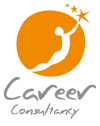31 May, 2017
‘Insanity: doing the same thing over and over again and expecting different results.’ Albert Einstein. I was on the radio once having a chat to Ali Clarke of ABC 891 about careers. A key message was that Job Search Networking was a great way of getting to jobs that your competitors never find out about. One of the listeners didn’t agree with me. His text made it clear that he thought that Job Search Networking was a waste of time.
Yet, his comment actually reinforced how I started the interview with Ali. That is, that all too often it is our technical ability to manage our career rather than our on-the-job work skills that stops us from finding that next job.
This doesn’t make us stupid: in my earlier years, I used to rush out to grab the Saturday paper to see if there were any likely jobs in it for me. Usually, there weren’t and I would glumly conclude that I needed to wait to the following Saturday to try again. My younger self at 27 was no more or no less intelligent than I am now. The huge difference in my ability to manage my career now is solely a matter of knowledge.
Let’s look at three areas of job search where knowledge makes a critical difference in your success.
Error #1: ‘I’ve had 170 networking meetings with no luck’.
This was the gist of the message from my radio listener.
Anyone who does so many networking meetings with no result is clearly making some/many technical mistakes. There could be so many issues. Here are the common errors:
- Asking your friends/acquaintances (called Primary Contacts in networking terms) to recommend you or asking them if they know of anyone who would be interested in you. This is NOT Job Search Networking. I call it sending out feelers and just like an octopus, you need to hope that the feelers come back with the goods. If not, you have exhausted your network to no avail.
- Contacting your Primary Contacts by email/phone rather than arranging a face to face meeting with them.
- Expecting your Primary Contacts to understand exactly what you do for a living, what your key points of differentiation are and what types of role you are looking for.
- Overwhelming your Primary Contacts with too much information so that they are not clear about what you want.
- Not making it clear to your Primary Contacts that you would like them to give you at least two names for you to contact.
I could go on and on and I haven’t even started about errors with Secondary Contacts!
When it comes to Job Search Networking, I start by providing a ‘helicopter’ view of it to my clients. If this doesn’t scare them off and they decide to undertake the activity, we then go through each step with a fine tooth comb: how to get past the receptionist… what to say when they just ask you to send in your résumé… what to say/do in the meeting itself…etc, etc, etc.
Naturally, I believe that I explain the whole process very clearly. Yet, typically, when my clients report back about their initial ‘networking’ meetings, I find that they are still making considerable errors that then need to be eliminated.
What I am trying to point out is that Job Search Networking is a complex, technical exercise and you need to master ALL aspects of it. However, it is merely a matter of knowledge and this knowledge is readily available.
Error #2: ‘I don’t put any statistics in my résumé because who would believe them anyway?’
I volunteered at the Career Expo last week and was chatting to an Engineer, ‘Rodney’. He wanted me to review his résumé and I commented that it contained no Achievements and that as an Engineer, this task would be easy for him. (I can remember the Engineers I worked with at Black & Decker in Malaysia – they measured their improvements to two decimal places!) Rodney then made the above comment.
I think I managed to convince Rodney that there was no point an employer asking candidates to supply information about their suitability for a role if they then proceeded to disbelieve the content the candidates provided. I didn’t ask him how many roles he had applied for with such a weak résumé but I could easily imagine the effect the continual knock backs would have on his self confidence.
This is a clear knowledge gap with severe implications: Rodney was driving an Uber taxi and close to giving up his hunt for an Engineering job.
Error #3: ‘I’ve sent out 400 applications with no luck’.
Applying for roles in Government is relatively straight forward. They are usually more rigid about applicants needing to meet all the numerous criteria and so it’s generally clear whether it’s worth the effort or not.
Yet, one Commonwealth Government employee I worked with a few months ago made this comment to me at our first meeting.
At the risk of repeating myself, you must be making serious errors with either your Cover Letter or your résumé if you send out so many applications with no result.
You have three choices
At The Career Consultancy, I have worked with thousands of individuals who are undergoing some kind of career exploration. Most commonly, our firm is engaged by organisations to help their staff move to new roles after a redundancy. Occasionally, our client organisations ask us to help their current employees to better manage their careers. And, of course we also offer our specialist career services to individuals.
Whatever the reason for our engagement, I meet with someone who wants career success. Together, we work through what I often call Recipes for Career Mastery.
We focus on a powerful combination: inspiration and practicality.
Now, one of my career colleagues, ‘Tim’, feels bad about recommending that his private clients schedule additional sessions with him – he’s worried about the extra cost they would incur.
Recently, after completing a résumé, a client asked him whether she should also book some interview skills practice with him. Tim replied that perhaps she should go to a few interviews and only come in for an appointment if she misses out on these roles.
When Tim told me this, I exclaimed in horror, ‘Would you have advised that if your client’s employer was paying for her career transition program?’ Of course, the answer was, ‘No’.
If you are looking for a new role, I’d say the same thing.
If you wish for ongoing career happiness, you have three clear choices:
- Fill the knowledge gap yourself.
- Find an astute friend.
- Pay an expert.
But whatever you do, don’t continually repeat a career activity that clearly is not working.
Like what you’ve read? Subscribe to our newsletter by clicking here. You’ll be the first to hear about our updates once a fortnight!


